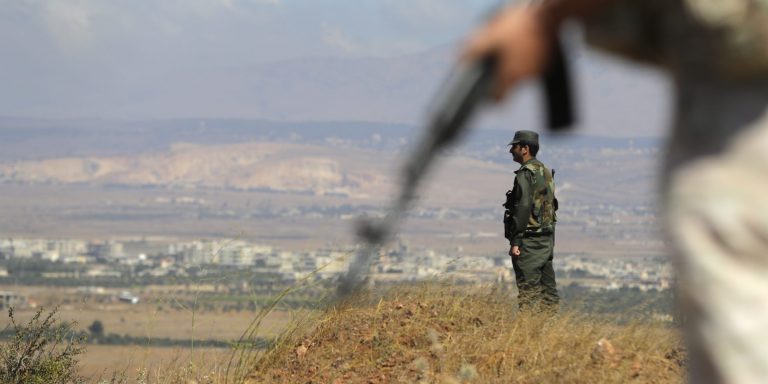INTELBRIEF
August 29, 2018
IntelBrief: The Next Last Battle for Syria

- The Assad regime is likely to launch an offensive to retake Idlib soon, the last rebel stronghold in Syria.
- Russia has moved more ships into position as warnings of possible chemical weapons strikes and retaliations fly between Moscow and Washington.
- The battle for Idlib is important because Idlib was always the ‘relief valve’ for crisis points in Syria; now there is nowhere left to go.
- The self-interest of the major players involved—Turkey, Russia, Iran, and the Assad regime and to a lesser degree, the U.S.—makes the Idlib campaign an extremely dangerous one.
.
There have been opportunities for the civil war in Syria to take pivotal turns in the last seven years. Numerous sieges and battles, including those in Aleppo, Douma, Ghouta, and Deir ez-Zor, were seen, rightfully, as turning points, though the turn was far slower than many expected. Now, the imminently-expected Assad regime offensive to retake Idlib province has the ability to be a singular catastrophe in a generally catastrophic war. The civilian suffering that will follow from a large-scale military operation by the Assad regime and its Russian and Iranian co-combatants will be enormous. The regional consequences of Turkey getting more involved than it already is in Idlib, and the likelihood of direct conflict among the forces working on behalf of Turkey, Syria, Russia, and Iran, are equally enormous.
The positioning of regime forces in nearby Latakia and Hama is the latest indication of what appears to be an inevitable showdown. Idlib has, since the beginning of the conflict, been the ‘relief valve’ for crisis points in the country. Hundreds of thousands of internally displaced Syrians have fled to Idlib, which was free from regime attack, but riven by infighting among the many violent non-state actors in Syria. Rebel fighters evacuated to Idlib from other areas as part of the slow-motion collapse of rebel groups since 2015, when the Russians came to the military aid of the faltering regime. The rebels, as well as desperate civilians, have sheltered in Idlib, but now there is no other ‘Idlib’ into which they can flee.
There are already open discussions and warnings about what will happen if the regime uses chemical weapons again. If the fighting becomes intense, which it will, the regime will almost certainly use chemical weapons as it has numerous times in the past. In response, Russia has suggested that it will be the rebels who are going to gas themselves in order to force to the West to strike Assad, an argument Moscow has been making for years—despite overwhelming evidence that it is the Assad regime that is using chemical weapons. Russian embassies in London and Washington, essentially diplomatic online troll outposts, have tweeted that it is the West that is preparing an offensive. The Russian embassy in Washington tweeted that the U.S. ‘is building up the group of cruise missile carriers in the Middle East region, connected with the preparation of a regular provocation with an alleged “use of chemical weapons” in the province of Idlib.’
The U.S. has warned both Assad and Putin that it will retaliate if the regime again uses chemical weapons, though it is unclear how far the U.S. will go in striking Syrian targets that are intermixed with Russian forces. World condemnation means nothing for the regime, nor for Russia, and the regime might very well make the decision that the battlefield gain of a debilitating and terrorizing chemical strike to speed the fall of Idlib is worth the expected heavy-but-still-limited U.S. response. As has been the case since almost the beginning of the conflict, the U.S. has very little leverage and hasn’t effectively used what leverage it does have.
Meanwhile, Turkey is fortifying its already extensive outposts and small bases in Idlib; it has sizable influence on the rebels in that area, and given that there is no other place to withdraw and regroup, the likelihood of intense combat is high. Adding to the confusion and concern is the former al-Qaeda affiliate Hayat Tahrir al-Sham, which is the most powerful rebel element in the province. It is now attempting to unify the fractious and fractured groups in order to defend their last stronghold.
.
For tailored research and analysis, please contact: info@thesoufancenter.org
[video width="960" height="540" mp4="https://thesoufancenter.org/wp-content/uploads/2018/08/IB-0829.mp4" poster="https://thesoufancenter.org/wp-content/uploads/2018/08/AP_18226641538377-1-e1535503668790.jpg"][/video]